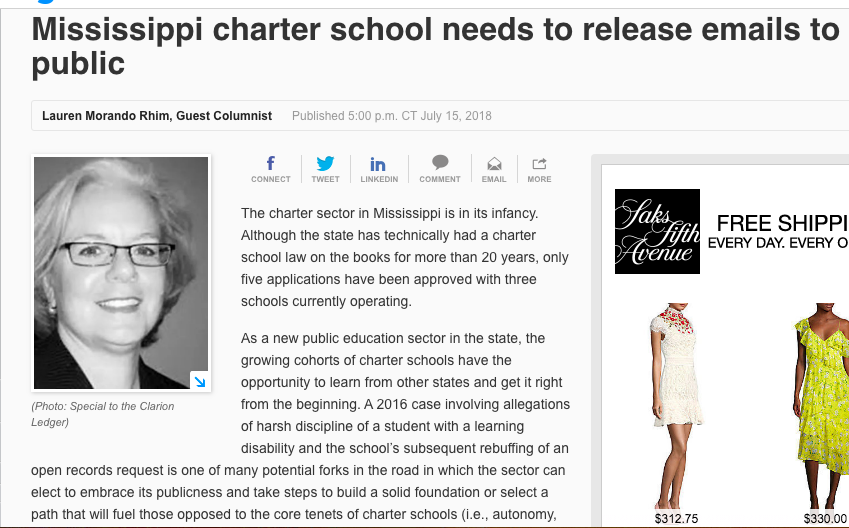The charter sector in Mississippi is in its infancy. Although the state has technically had a charter school law on the books for more than 20 years, only five applications have been approved with three schools currently operating.
As a new public education sector in the state, the growing cohorts of charter schools have the opportunity to learn from other states and get it right from the beginning. A 2016 case involving allegations of harsh discipline of a student with a learning disability and the school’s subsequent rebuffing of an open records request is one of many potential forks in the road in which the sector can elect to embrace its publicness and take steps to build a solid foundation or select a path that will fuel those opposed to the core tenets of charter schools (i.e., autonomy, accountability, and choice).
The case stems from allegations that a teacher at a charter school grabbed a student with a disability and dragged him down the hall and then slung him against a wall. The mother subsequently filed a lawsuit against the school alleging that the school failed to keep her son, who has a learning disability, safe. While the mother’s lawsuit is pending, the Clarion Ledger, citing the Mississippi Public Records Act, requested emails sent by the principal for the month following the incident and emails from the charter school network’s servers pertaining to the employee involved. The charter school refused to share the emails on the grounds that the school is exempted from the state’s Public Records Act and that only documents produced by its governing board are subject to disclosure. This directly contradicts prior decisions by the state Ethics Commission that emails written by teachers related to school business are public records.
While it is unclear whether the respective documents might actually be protected under the Federal Family Educational Rights and Privacy Act, the argument that charter schools are exempt from Public Records Act is disconcerting on multiple fronts….

Comments are closed.